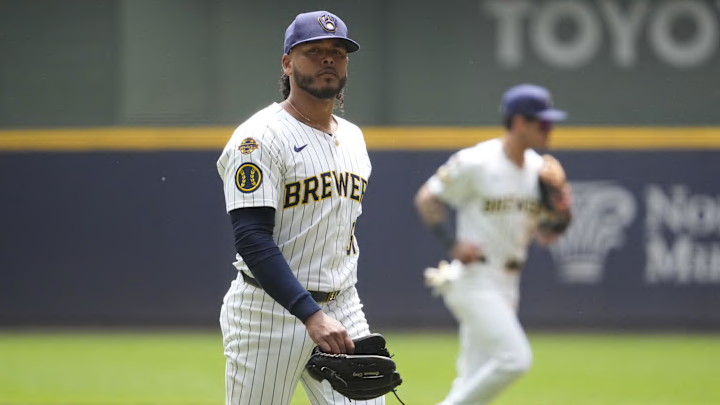The Milwaukee Brewers have been playing catch-up in the division all season. They’ve spent just one day in first place after opening the year with two separate four-game losing streaks in the first month, something that didn’t happen at all last season. They had been shut out multiple times and, at one point, were scrambling just to find a starting pitcher for the next day.
Now, the Brewers are back to playing their brand of baseball. The pitching staff is getting healthier and performing at a high level, the offense is starting to click, and the Chicago Cubs’ division lead is quickly shrinking. Milwaukee is also entering a crucial stretch before the All-Star break; including their recently completed series with the Pittsburgh Pirates, they’ll face teams with losing records in four of six series, presenting a prime opportunity to further close the gap in the NL Central and cement themselves as a playoff-caliber team.
Once the All-Star break passes, the next major milestone will be the trade deadline. Right now, the Brewers appear positioned to be buyers, but that hasn't always been the narrative this season, and if they falter over the next six weeks, that stance could again shift. If it does, a franchise-altering trade could be on the table (with a strong emphasis on the word "could").
Pivotal next few weeks could dictate Milwaukee Brewers' franchise-changing trade involving Freddy Peralta
When the Brewers were slumping earlier in the year, Freddy Peralta's name was floated as a potential trade candidate. Incentivizing this thinking was the fact that he has 1.5 years of team control left, his proven track record of success, and that a return package would be massive if he were dealt this summer. Additionally, the Brewers have a ton of starting pitching options with several waiting in Triple-A and even more soon returning from injury.
On the flip side, Milwaukee knows what trading a valuable piece like Peralta mid-season can do to the clubhouse's chemistry and overall morale. However, with the sides reportedly not being able to agree on an extension beyond 2026 yet, it might only be a matter of time before he meets the same fate that Josh Hader, Corbin Burnes, and Devin Williams all met. Even still, a severance of Peralta and the Brewers relationship would require an irresistible return.
For the Brewers to trade Freddy Peralta at the deadline, the return would have to be overwhelming
For the Brewers to even consider trading away their ace at this year's deadline, not only would the team have to have a really poor next few weeks on the field and clearly fall out of the postseason race, but they would also have to receive an offer that everyone agrees is a steep overpay.
At first glance, saying that the Brewers could demand a similar trade package to what the Chicago White Sox got this offseason in exchange for their former ace, Garrett Crochet, might sound unfathomable, but let's take a closer look.
Crochet was traded with two years of team control remaining; Peralta would hypothetically be traded with 1.5 years of team control remaining. Prior to the trade, Crochet had eclipsed the 100-inning mark just once in his career and has a long history of injuries; Peralta has been a reliable starter for years, making more than 30 starts in each of the last two seasons. Crochet has just three innings of postseason experience, all out of the bullpen; Peralta has made three starts in the postseason and covered 18 total innings.
Sure, Crochet is five years younger than Peralta and may have a slightly higher ceiling, but acquiring a player at the deadline generally increases their trade value as teams are more desperate for reinforcements in late July than during the offseason. Additionally, the Brewers certainly do not need to trade their ace in the same way that the White Sox were looking for any excuse to.
In the end, a return would have to look pretty similar to the two MLB Top-100 prospects (Kyle Teel and Branden Montgomery) and two Top-30 Red Sox prospects (Chase Meidroth and Wikelman Gonzalez) that Boston gave up for Crochet in order for the Brewers to even consider trading Peralta. However, if they keep playing the way that they have over the last month, that thought won't even enter the minds of the experts in the Brewers' front office.
